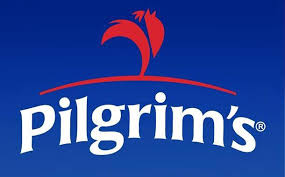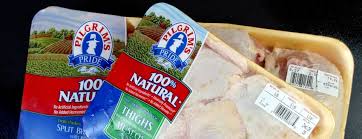The Criminal Chicken Price-Fixing Conspiracy (Part II of III)

The recent indictment of four executives involved in a long-running price-fixing scheme among broiler chicken suppliers provides an important window into how such conspiracies work and evade detection. Antitrust compliance programs have to be crafted with appropriate consideration of industry concentration and practices, attendant risks, and effective monitoring and audit programs.
Broiler chickens are supplied to grocers, restaurants and cooperatives. Some fast-food restaurants participate in buyer cooperatives, known as quick-service restaurants (“QSRs”). During the period of the charged conspiracy 2012 to 2017, there were seven suppliers of broiler chickens.
Chicken is typically sold in 8-piece quantities and distinguish between light and dark meat quantities. Negotiations for chicken supply usually are conducted for a calendar year and include established prices and discounts. In some cases, multi-year contracts are negotiated.

A common industry pricing format is to set a price per 8-pack with a discount referred to as “amount back,” or “30 back” which means a 30 cent discount per 8-pack or other quantity. A “35 back” would be a larger discount and a lower price.
The defendants charged in the conspiracy include Jayson Penn, Executive Vice President, and Roger Austin, Vice President from Pilgrim’s Pride, and Mikell Fries, Sales Manager and eventually President, and Scott Brady, Vice President from Claxton Poultry.
2013 QSR Dark Meat and Wings Supply: In 2012, a cooperative negotiated prices with suppliers for dark meat and wings for the following year. Austin provided Pilgrim Pride’s bid to the cooperative at a price of .30 back of the 8-piece. Brady submitted an identical bid to the cooperative. The cooperative employee told Austin that some suppliers had bid dark meat at .32 back, a lower price, and the cooperative planned to request that all suppliers change their bids to .31 back.
In response, Brady checked with other suppliers on their pricing; Austin and Brady called each other several times and within minutes of these calls Brady texted Fries, a Claxton Poultry colleague, that other suppliers were actually at either .30 or .31 back, not .32 back, as the cooperative employee stated.

Brady also indicated he had spoken to Austin from competitor Pilgrim Pride and they were .03 higher than Claxton Poultry on 8-piece. Austin further instructed Brady to “raise our prices to plus .10. Fries from Claxton Poultry agreed to do so. In the second-round bids, suppliers submitted proposals with .30 back pricing and equivalent pricing for packages of chicken wings.
Penn sent an employee at Pilgrim Pride a spreadsheet containing the 8-piece prices submitted for Claxton Poultry and two other suppliers.
2013 Request by QSR to Supply Reduced-Weight Product: In March 2013, a cooperative employee requested suppliers to quote to supply reduced weight 8-piece product. On March 8, 2013, telephone records revealed two 8 minute calls between Austin from Pilgrim’s Pride and Brady from Claxton Poultry. One hour later Brady texted Fries that he had spoken to Austin (Pilgrim’s Pride) about the “sizes and he is in agreement with us.”
2014 Dark Meat Supply for QSR: In late 2013, a cooperative was negotiating for dark meat supply for 2014. Austin submitted a bid for .30 back for Pilgrim’s Pride. Brady submitted a bid for .305 back for Claxton Poultry. On November 19, 2013, Brady and Austin spoke on the phone for 3 minutes. Later Brady told Fries, his colleague, that Auston was staying at .30 back, and Fries instructed him to stay at .305 back. In the end, Pilgrim Pride and Claxton Poultry reached a deal for .305 back for 2014.
2015 8-Piece Supply for QSR: In the middle of 2014, a cooperative negotiated prices and supply of 8-piece chicken for 2015. Pilgrim’s Pride submitted a bid with a margin of $.1175/lb. Claxton Poultry’s bid contained a margin of $.0673/lb. Austin (Pilgrim’s Pride) and Brady (Claxton Poultry) spoke to each in a 24 minute call. Penn then told an employee that Austin did some checking around and listed the bid prices for Claxton Poultry and four other suppliers. As the negotiations progressed, Pilgrim’s Pride sought to ensure that its price increase was maintained and that it would have the highest margin as part of the agreement with its competitors. Claxton Poultry and at least two other suppliers agreed to maintain price increases and ensure that Pilgrim’s Pride had the highest margin over the objections of the cooperative.

Punishment of Non-Cooperating Supplier: The indictment outlines attempts by the co-conspirators to punish a specific supplier which provided chicken at a lower price and then regularly ran out of chicken supply. The other suppliers would often supply the lower-priced supplier to meet a shortfall but would charge higher than normal prices to punish the lower-priced supplier for unilateral contract negotiations with a customer.
2018 Broiler Chicken Products for QSR: In early 2017, a cooperative negotiated with chicken suppliers for 2018 supply. Over a four-day period, Brady (Claxton Poultry) and Austin (Pilgrim’s Pride) had numerous phone calls. When Claxton Poultry met with the cooperative, Pilgrim Pride was given a full debriefing on the negotiations to ensure coordinated pricing and terms.














